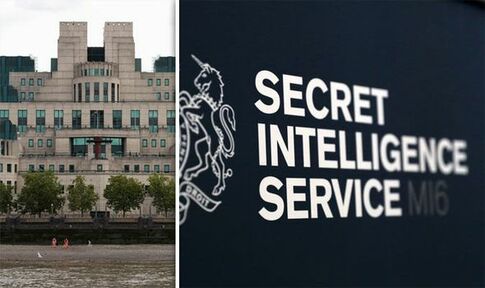On the ethics of espionage – Anonymous in TLS:
‘To the practitioner, Fabre’s account is both encouraging and admonitory. The first of her two central theses is that “intelligence activities are morally justified only as a means to thwart violations of fundamental rights and subject to meeting the requirements of necessity, effectiveness, and proportionality”. It is accompanied by a warning: “It is entirely possible – perhaps even likely – that much of what intelligence agencies have done and are currently doing is morally wrong, at the bar of the account I defend here”.
In that warning there is an implied acknowledgement of the limits of what a book such as this can hope to achieve. The activities of intelligence agencies are not open to public scrutiny and accountability in the normal sense, and the author rightly argues that the solution to the “accountability conundrum” lies not in theory, but in “the proper vetting To the practitioner, Fabre’s account is both encouraging and admonitory. The first of her two central theses is that “intelligence activities are morally justified only as a means to thwart violations of fundamental rights and subject to meeting the requirements of necessity, effectiveness, and proportionality”. It is accompanied by a warning: “It is entirely possible – perhaps even likely – that much of what intelligence agencies have done and are currently doing is morally wrong, at the bar of the account I defend here”.
In that warning there is an implied acknowledgement of the limits of what a book such as this can hope to achieve. The activities of intelligence agencies are not open to public scrutiny and accountability in the normal sense, and the author rightly argues that the solution to the “accountability conundrum” lies not in theory, but in “the proper vetting and ethical training of intelligence officers; in fostering constant awareness amongst citizens and officials of the dangers of a culture of excessive secrecy; and in the normatively directed institutional design of intelligence oversight”. In the UK the activities of the three intelligence and security agencies – GCHQ, MI5 and SIS – are governed by law and subject to executive, parliamentary and judicial oversight, through ministers, the Intelligence and Security Committee, and the investigatory powers commissioner and judicial commissioners. Ultimately, however, the ethical health of the organizations depends not on regulation, but on good leadership and on their people having a strong moral compass; as Onora O’Neill has convincingly argued, there needs to be “trustworthiness before trust”.’
(…)
‘The better the intelligence, therefore, the less the uncertainty and the more likely it is that the decision will be taken on sound moral grounds. Of course, the intelligence may be inconclusive, and a decision still has to be taken. Good intelligence can only ever inform policy; it is not a substitute for it. But having it is better than not.’
(…)
‘The specifics of intelligence techniques and methods are especially challenging for outside observers to explore, because so much (one hopes pretty well all) of the actual practice of secret intelligence work remains hidden from view. There is, nevertheless, much in Fabre’s account that rings true. All three UK agencies have their own ethical frameworks, based on their values. In SIS, where the emphasis is on recruiting human sources, the guiding principles are informed consent, professional care and proportionality. This means that, first, we want those who take risks on our behalf to be as aware as possible of what these risks are, and what we can and cannot do if things go wrong; second, given that we are the more powerful party in the relationship, that we must take responsibility for conducting it in the safest way possible, using all of our creative skills and energies to keep our agents safe; third, that we must be rigorous in weighing the intelligence benefits of any agent relationship against the ethical harms that are intrinsic to it. One hopes Fabre would approve.’
Read the article here.
Much of the intelligence work remains hidden from view, but thank God there are spy novels, renegades and spies who write insightful memoirs.
As for agencies letting their own spies rot away, I prefer John le Carré to this essay, that reads like a theologian trying to defend God against all kinds of human complaints.
